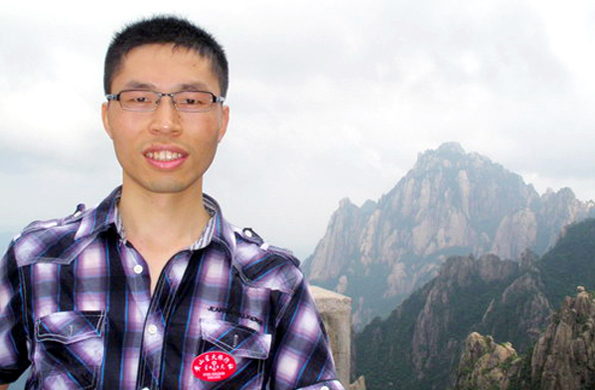Multi-field cooperation modernizes grassroots governance
 For a long time, the profound changes in China’s economy and society, the sustained growth of the people’s demand for spiritual and cultural life, and the innovation and progress of information and communication technology have brought new challenges to grassroots societies that already have many longstanding problems.
For a long time, the profound changes in China’s economy and society, the sustained growth of the people’s demand for spiritual and cultural life, and the innovation and progress of information and communication technology have brought new challenges to grassroots societies that already have many longstanding problems.Major challenges
One of the longstanding problems and new challenges is economic and social transformation. With cities becoming the focus of China’s economy and society, some social contradictions have arisen and accumulated in land requisition and housing demolition and relocation. At the same time, some new challenges are also increasingly prominent, such as food and drug safety and environmental pollution.
Second, the profound shift of people’s needs from material life to spiritual and cultural life has posed new challenges to grassroots governance. Grassroots governance cannot continuously support people’s spiritual and cultural living quality. And the ability to effectively meet the people’s growing demand for spiritual and cultural life still needs to be strengthened.
Third, deeply integrated globalization and advances in information and communication technologies also pose new challenges for us. In addition to new development opportunities, globalization brings such risks as environmental pollution, terrorist attacks, drug trafficking and the spread of diseases. The progress in information and communication technology has greatly facilitated people’s lives, but it has also brought such risks as financial dangers and cybercrime.
Multi-field governance
To tackle the longstanding problems and new challenges in grassroots governance, we should shift from the governance of departments, fields, levels and districts to multi-field governance. Through an overall higher level of planning and promotion, multi-field governance aims to comprehensively deepen the reform of the system and mechanism of multi-field cooperative governance, so as to break the border barriers, strengthen cross-border cooperative governance and enhance the comprehensive governance capacity. Specifically, multi-field governance mainly includes a comprehensive governance system and comprehensive governance capacity.
In the comprehensive governance system at the local level, multi-field governance includes at least three aspects. First, it should be cross-sector, cross-level and cross-regional governance. Multi-field governance emphasizes the establishment of horizontal and regular cooperative governance mechanisms among departments at the same level, governments and regions, breaking down the barriers of horizontal collaborative governance. Second, it should be cross-border and cross-level governance. Different from governance in a single field and at a single level, multi-field governance emphasizes the overall planning of a comprehensive governance system at the vertical level, and it makes efforts to promote political, economic, social, cultural and ecological progress at the local level. Third, multi-field governance requires cooperative platforms featuring equality, openness and inclusiveness.
Breaking down barriers
To actively adapt to the new reality and new requirements of the transformation of major social contradictions in China, future-oriented multi-field governance aims to build a streamlined and efficient government, create a pluralistic, open, harmonious, well-organized and vibrant local society, and develop a self-balanced cyclical system to establish a stable ecology.
In terms of top-level design, multi-field governance should adhere to the people-centered concept of development. It should implement the new vision of innovative, coordinated, green, open and shared development, plan an overall governance system and work together to foster a top-down pyramid for local governance. It should utilize various driving forces to build a comprehensive governance platform and carrier, so as to improve comprehensive governance capacity. It should also solve the imbalance in development and continue to increase people’s sense of achievement, happiness and satisfaction.
First, overall plans for a system of multi-field social governance need to be made. It is necessary to expand the coverage of the grassroots governance system in an orderly manner from social security, crime fighting and public safety to areas such as environmental protection, food and drugs, financial risk, new types of crime, transportation, and key livelihood programs. The focus of future-oriented multi-field governance should be on urban areas. Therefore, great importance should be attached to the grassroots governance of large cities and megacities.
Second, a top-down pyramid should be erected in local governance. Multi-field governance still needs to be explored at the grassroots level. Given differences in the problems and the degree of governance innovation, different regions should adopt their own innovation strategies. We should encourage innovation-leading places to adopt a top-down pyramid and other places to adopt application-oriented innovation strategies, gradually forming a top-down pyramid for innovation at the local level and a stable ecosystem for innovation at the regional level.
Third, efforts should be made to build a comprehensive governance platform and carrier by drawing support from various driving forces to improve the capacity for multi-field governance. Multi-field governance urgently needs to upgrade from one-wheel drive to two-wheel drive and even multi-wheel drive. The current multi-field governance featuring a single entity in a single field needs to become a two-wheel drive of “technology and system” and “technology and society,” while the future-oriented multi-field governance needs the multi-wheel collaborative drive of “system, technology and society.”
Zhang Bingxuan is an associate professor from the School of Public Administration at Zhejiang Gongshang University.
edited by CHEN ALONG
